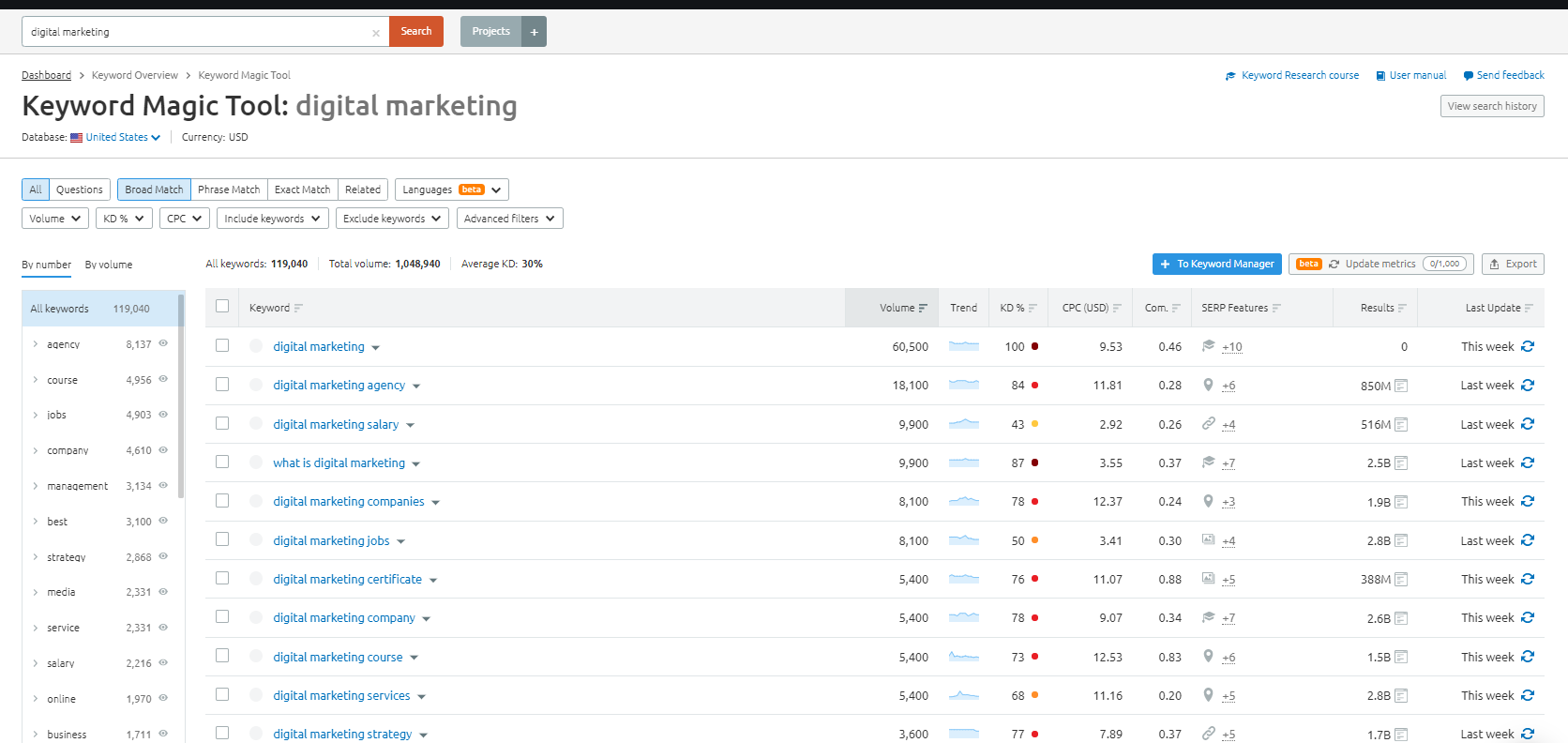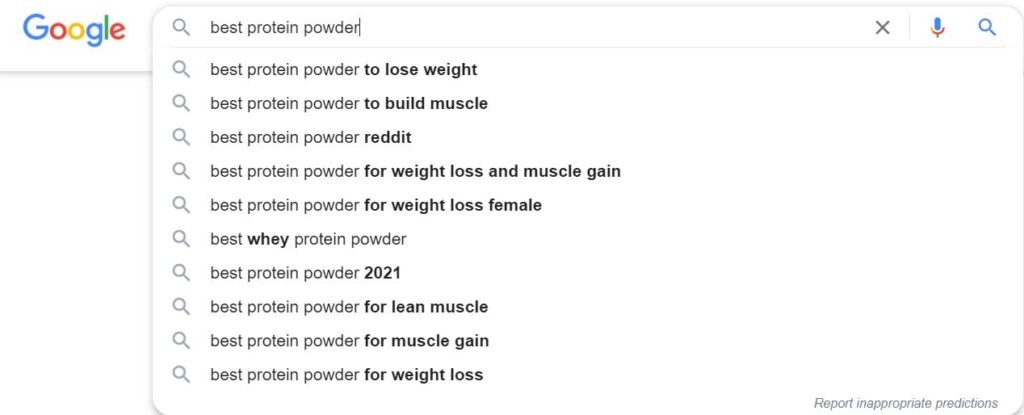
The Basics: Understanding SERPs, Search Algorithms, and SEO
If you want any chance at ranking high in the Search Engine Results Pages, or SERPs for short, it’s essential to understand how search engines respond to a user query. The most popular web engine, namely Google, ranks web pages algorithmically based on diverse factors such as the user’s location, language, device, and previous queries.
Google’s infamous search algorithm (which is, in fact, a fusion of many algorithms) remains unknown for very good reasons. However, if you’re setting up a new website, you obviously want to start drawing in organic (i.e., non-payed) inbound traffic. After all, why even have a website if no one lands on it and purchases your products?
This is where search engine optimization steps in the wide and wondrous web world. SEO is the process of optimizing your website to rank up higher for a particular search query.
You might have heard the word “keyword ranking” being tossed about on SEO-related blogs. To keep it brief, “keyword ranking” refers to your page’s specific spot (rank) on the SERPs for a particular user query. Keep in mind that most people don’t scroll past the fifth item on the first Google results page, where roughly 95% of web traffic is contained. This renders the web insanely competitive for startups or smaller companies. But stick with us because not all is lost.
What is a keyword, and why are keywords important for your website
But basics first. Let’s understand keywords in the context of user queries.
A keyword (also known as a key phrase or a focus keyword) is a word that best describes the content of a webpage; hence it’s a “key” to grasping what a particular web page is about.
Let’s assume you own a brand-new holiday resort in the Bahamas, so you decide to launch a presentation website to attract potential tenants. When people Google something like “holiday resort in the Bahamas,” or “holiday accommodations in the Bahamas,” your website should pop up among these very first results—well, at least in an ideal scenario. The thing is, to rank high for such search queries, you’ll need high-quality content backed up by a finely-tuned SEO keyword strategy.
While setting us a solid keyword strategy is by no means an easy process – and we’re not trying to make it seems so – we’ve traced out three key steps that you can follow to boost your website’s keyword ranking—that is, to help it rank higher for keywords or key phrases that can attract relevant traffic (leads, potential customers).
3 Essentials for Boosting your Website Ranking using a Keyword Strategy
1. Keyword Ranking 101: Research With the Right Keyword Tools
Before you even begin laying out the foundations of your SEO strategy (like mapping keywords to specific pages on your website), you’ll need some industry tools to help you figure out which keywords are relevant for what you’d like to achieve with your website. In short, you need to understand what your potential audience (whatever it may be) usually types into the search bar to find the kind of products or services you’re selling.
And this is precisely why understanding search intent (also known as user intent) is crucial. If your website pages don’t meet search intent, you’re doomed to a low keyword ranking right off the bat. Also, keep in mind that trends fluctuate, so check in with what your target audiences are looking for once in a while.
Many keyword research tools can help come up with a keyword strategy before you move on to actually composing and optimizing your website’s content. We recommend that you go through the following:
- Insightful tools like Ubersuggest, Google Trends, and Answer the Public.
- Google’s Keyword Planner, which you can access through a Google Ads account.
- SEMrush has a powerful in-built keyword research tool – but you’ll have to purchase it.
- WordPress plugin Yoast SEO Premium, which also offers some powerful insights.
2. Using the Basics: Long-Tail, Long-Tail, and LSI Keywords
Keywords aren’t that simple. Some speak about 7, 9, or even 18 types, but we’ll avoid getting lost in subtle categorizations. For our current purpose, let’s trace out three basic categories: short-tail keywords, long-tail keywords, and the less-talked-about latent semantic indexing keywords.
Short-Tail Keywords (STKs)
An STK is a search term containing fewer than three words. Thus they designate broad topics with little specificity. For instance, “digital marketing,” “digital services,” or “online rebranding” are short-tail keywords that a digital agency might wish to rank high for. But here’s the catch: their simplicity (as general search queries) also makes them extremely popular, meaning they are incredibly competitive. Even so, relevant short-tail keywords should make up a fair portion of your on-site SEO strategy.
Long-Tail Keywords (LTKs)
Compared to STKs, long-tail keywords, which contain 3+ words, will boast lower search volumes. But don’t underestimate their potential. Longer also means they’re more detailed and precise (so they convey search intent much better). Consequently, LTKs will naturally attract more relevant traffic to your website. A lower search volume also translates to less competition, which ultimately means you’ll have higher chances of ranking well on a long-trail keyword.
Now let’s think about the following scenario. You’d like to attract interested customers to your website, which sells high-quality protein powder. An effortless way to find relevant LTKs would be to type “best protein powder” (an STK) and allow Google’s powerful prediction tool to complete the query for you, as such:
After that, you can look up search volumes and difficulty for some of the suggested LTKs (like “best protein powder for weight loss” or “best protein powder for lean muscle”) using one of the previously mentioned tools, then publish some genuinely informative blogs based on these chosen keywords (which isn’t the same as spamming a keyphrase).
Latent Semantic Indexing Keywords (LSI Keywords)
Let’s take a moment to think about it: what is considered SEO-friendly website content isn’t about spamming the same keyword over and over again (speaking of that, do check our next point). Instead, Google’s algorithms now strive to also analyze web pages based on LSI (Latent Semantic Indexing) keywords. LSI Keywords are conceptually related terms and phrases that help a search engine understand web content on a deeper level to return more relevant results to its users. According to Backlinko, “In the early days of SEO, Google and other search engines would figure out a page’s topic based 100% on the keywords they found on the page.” However, things are changing: semantic analysis now seems to be the next big stage in SEO.
In fact, for blog posts and other types of informative content, spamming one or two high-volume keywords shouldn’t be your only focus. According to Neil Patel, you can’t target the best keywords unless your website has a domain authority of 90. The good part, he says, is that keyword research is no longer the gold standard for keyword ranking and blog post traffic. Instead, context heavily outweighs so-called “traditional” keyword research – which means you need to pay more attention to the actual quality (and sematic variety) of your content.
3. Balance is Key: Don’t Over-Optimize!
Now here’s another tricky matter: with excessive keyword usage, you run the risk of over-optimization, which makes your content highly unnatural to a real user. Nowadays, as we’ve already highlighted, actual relevance to a specific user query is what drives a powerful SEO strategy (and Google now assesses that semantically). After all, what genuinely convinces a user or a potential customer is the delivered quality of your content, not how many times you’ve thrown in “search engine optimization” on your landing page.
Tawaways
With algorithms constantly changing and user interests fluctuating, it’s tough to devise and follow a keyword strategy all by yourself. On top of that, SEO has a strong technical side that people don’t bring up nearly enough. This is when a professional digital marketing agency can step in and perform the challenging work for you. For the best results, we recommend that you pair up with an industry-specific vendor.





